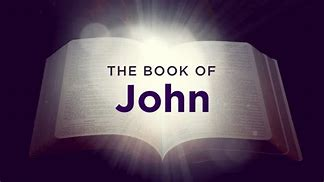Jesus Cleanses the Temple - {Interlinear <Greek>}
2:13 - • {Καὶ<kai>} The {τὸ<ho>} Passover {πάσχα<pascha>} of → the {τῶν<ho>} Jews {Ἰουδαίων,<Ioudaios>} was {ἦν<eimi>} at hand, {ἐγγὺς<engys>} and {καὶ<kai>} Jesus {ὁ Ἰησοῦς.<ho Iēsous>} went up {ἀνέβη<anabainō>} to {εἰς<eis>} Jerusalem. {Ἱεροσόλυμα <Hierosolyma>}
2:14 - • {καὶ<kai>} In {ἐν<en>} the {τῷ<ho>} temple {ἱερῷ <hieron>} he → found {εὗρεν<heuriskō>} those who {τοὺς<ho>} were → selling {πωλοῦντας<pōleō>} oxen {βόας <bous>} and {καὶ<kai>} sheep {πρόβατα<probaton>} and {καὶ<kai>} pigeons, {περιστερὰς <peristera>} and {καὶ<kai>} the {τοὺς<ho>} money-changers {κερματιστὰς<kermatistēs>} sitting {καθημένους,<kathēmai>} there. ←
2:15 - And {καὶ<kai>} making {ποιήσας<poieō>} a → whip {φραγέλλιον <phragellion>} of {ἐκ<ek>} cords, {σχοινίων<schoinion>} he → drove {ἐξέβαλεν <ekballō>} them → all {πάντας<pas>} out of {ἐκ<ek>} the {τοῦ<ho>} temple, {ἱεροῦ,<hieron>} with {τε<te>} the {τά<ho>} sheep {πρόβατα<probaton>} and {καὶ<kai>} oxen. {τοὺς βόας,<ho bous>} And {καὶ<kai>} he poured out {ἐξέχεεν<ekcheō>} the {τὸ<ho>} coins {κέρμα,<kerma>} of → the {τῶν<ho>} money-changers {κολλυβιστῶν <kollybistēs>} and {καὶ<kai>} overturned {ἀνέτρεψεν, <anatrepō>} their • tables. {τὰς τραπέζας<ho trapeza>}
2:16 - And {καὶ<kai>} he → told {εἶπεν·<legō>} those who {τοῖς<ho>} sold {πωλοῦσιν <pōleō>} the {τὰς<ho>} pigeons, {περιστερὰς<peristera>} “Take {ἄρατε<airō>} these {ταῦτα<houtos>} things ← away; {ἐντεῦθεν,<enteuthen>} do → not {μὴ<mē>} make {ποιεῖτε<poieō>} my {μου<egō>} Father’s {τοῦ πατρός<ho patēr>} house {τὸν οἶκον<ho oikos>} a → house {οἶκον<oikos>} of → trade.” {ἐμπορίου.<emporion>}
2:17 - His {αὐτοῦ<autos>} disciples {οἱ μαθηταὶ<ho mathētēs>} remembered {ἐμνήσθησαν<mimnēskomai>} that {ὅτι<hoti>} it → was {ἐστίν·<eimi>} written, {γεγραμμένον<graphō>} “Zeal {ὁ ζῆλος<ho zēlos>} for → your {σου<sy>} house {τοῦ οἴκου<ho oikos>} will → consume {καταφάγεταί<katesthiō>} me.” {με.<egō>}
2:18 - • {ἀπεκρίθησαν<apokrinomai>} So {οὖν<oun>} the {οἱ<ho>} Jews {Ἰουδαῖοι <Ioudaios>} • {καὶ<kai>} said {εἶπαν<legō>} to → him, {αὐτῷ·<autos>} “What {τί<tis>} sign {σημεῖον<sēmeion>} do → you → show {δεικνύεις<deiknymi>} us {ἡμῖν<egō>} for {ὅτι <hoti>} doing {ποιεῖς;<poieō>} these {ταῦτα<houtos>}
2:19 - Jesus {Ἰησοῦς<Iēsous>} answered {Ἀπεκρίθη<apokrinomai>} • {καὶ<kai>} • {εἶπεν <legō>} them, {αὐτοῖς·<autos>} “Destroy {λύσατε<lyō>} this {τοῦτον,<houtos>} temple, {τὸν ναὸν<ho naos>} and {καὶ<kai>} in {ἐν<en>} three {τρισὶν<treis>} days {ἡμέραις<hēmera>} I → will → raise {ἐγερῶ<egeirō>} it {αὐτόν.<autos>} up.”←
2:20 - The {οἱ<ho>} Jews {Ἰουδαῖοι·<Ioudaios>} then {οὖν<oun>} said, {εἶπαν<legō>} “It → has → taken → forty-six {τεσσεράκοντα καὶ ἓξ<tesserakonta kai hex>} years {ἔτεσιν<etos>} to → build {οἰκοδομήθη<oikodomeō>} this {οὗτος,<houtos>} temple, {ὁ ναὸς<ho naos>} and {καὶ<kai>} will → you {σὺ<sy>} raise {ἐγερεῖς<egeirō>} it {αὐτόν;<autos>} up ← in {ἐν<en>} three {τρισὶν<treis>} days?” {ἡμέραις<hēmera>}
2:21 - But {δὲ<de>} he {ἐκεῖνος<ekeinos>} was → speaking {ἔλεγεν<legō>} about {περὶ<peri>} the {τοῦ<ho>} temple {ναοῦ<naos>} of → his {αὐτοῦ.<autos>} body. {τοῦ σώματος<ho sōma>}
2:22 - When {ὅτε<hote>} therefore {οὖν<oun>} he → was → raised {ἠγέρθη <egeirō>} from {ἐκ<ek>} the → dead, {νεκρῶν,<nekros>} his {αὐτοῦ<autos>} disciples {οἱ μαθηταὶ<ho mathētēs>} remembered {ἐμνήσθησαν<mimnēskomai>} that {ὅτι<hoti>} he → had → said {ἔλεγεν,<legō>} this, {τοῦτο<houtos>} and {καὶ<kai>} they → believed {ἐπίστευσαν<pisteuō>} the {τῇ<ho>} Scripture {γραφῇ<graphē>} and {καὶ<kai>} the {τῷ <ho>} word {λόγῳ<logos>} that {ὃν<hos>} Jesus {ὁ Ἰησοῦς.<ho Iēsous>} had → spoken. {εἶπεν<legō>}

John 2:13-22 -
In Israel’s history, the temple represented God’s gracious dwelling among his covenant people. By his own initiative, he provided for a restored relationship with his sinful people (Ex. 25:8–9). Unfortunately, however, ritual replaced reality, and pride was more obvious than humility; the “worship of worship”—and, as seen here, the desire for financial gain—took precedence over the worship of God.
Jesus’ cleansing of the temple was much more than an act of moral outrage and judgment. It was also a sign of end-time fulfillment. The temple was never given as an end in itself. Like the tabernacle, the temple was essential but ultimately temporary, for its abuses exposed just how broken God’s worship and God’s worshipers had become through sin. Something better was promised, and that something arrived with Jesus, the true and final temple (John 2:19–21). As the embodiment of the temple (the place where God was present among his people in the Old Testament), Jesus is God with us—Immanuel—and God for us (Isa. 7:14; Matt. 1:18–25).
By Jesus’ death and resurrection, the temple-less worship of the garden of Eden will once again be realized in the perfected worship of the new heaven and new earth. On that day, God himself and the Lamb will be the temple forever (Rev. 21:22).
References:
All contents are reposted from ESV.org.
“Scripture quotations are from The ESV® Bible (The Holy Bible, English Standard Version®), copyright © 2001 by Crossway, a publishing ministry of Good News Publishers. Used by permission.
All rights reserved.”
Comments